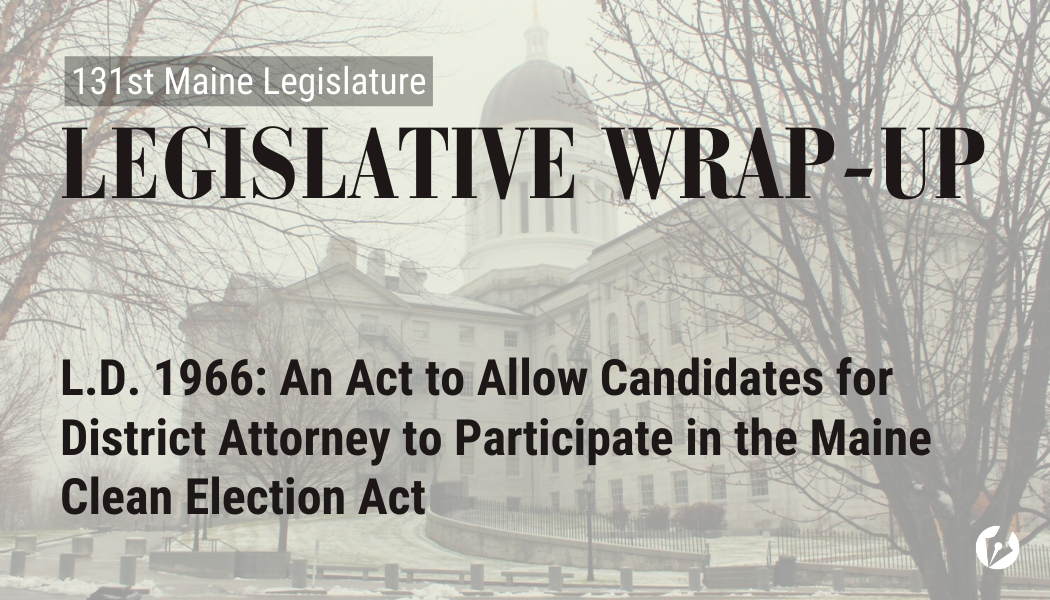This bill would allow district attorney candidates to participate in the Clean Election Act, which provides public financing to candidates who prove they have a certain level of community support.
After candidates begin receiving these public funds, they can no longer accept private contributions.
Passed as a citizen initiative in 1996, the Maine Clean Election Act is already open to candidates running for governor, the state senate and state house of representatives.
The bill began as an effort geared toward all county offices and was narrowed to focus on district attorneys, where expenditures have historically been the largest.
It was approved by both chambers and is on the appropriations table. It would go into effect starting in the 2026 election cycle.
Proponents argue that the bill would allow district attorney candidates to focus on listening to constituents rather than fundraising, and avoid potential conflicts of interest. No one testified against the bill at the public hearing.
Read the full bill on the legislature’s website.
Here are some excerpts from testimony:
“I first ran for office as a clean election candidate for the Maine Legislature. Consequently my campaign was focused on hearing the concerns of the people of my district and meeting as many of them as possible. I then ran for district attorney for two Maine counties and had to raise money traditionally. Raising money unfortunately took the majority of my time. Who donates to a district attorney race? Attorneys who might have business with the District Attorney’s office. That invariably creates a potential future conflict.” ~ Maeghan Maloney, district attorney for Kennebec and Somerset counties
“County elections are the only place where Mainers directly elect our law enforcement officers, prosecutors and other important offices in our justice system. Mainers need to be able to trust that sheriffs, district attorneys and other county officials can carry out their duties impartially. Like judges, these officials must operate without “fear or favor.” Direct elections can help ensure these offices are held accountable. But it also introduces the need for campaigns, and with that, campaign fundraising, and the potential for influence by campaign donors. Historically the majority of district attorney campaigns are either self-funded (which is an issue of equity and opportunity) or funded by lawyers who expect to have cases within that district.” ~ Anna Kellar, Maine Citizens for Clean Elections
“As we have seen with recent elections, there has been a flood of monies into countywide races. Amending the Maine Clean Election Act to include candidates for countywide office will help tamp down on outside monies being poured into these races by special interest groups and wealthy individuals. This change will encourage candidates to participate in countywide races who don’t have the means to rely on personal wealth and connections.” ~ Rep. Morgan Rielly, D-Westbrook







